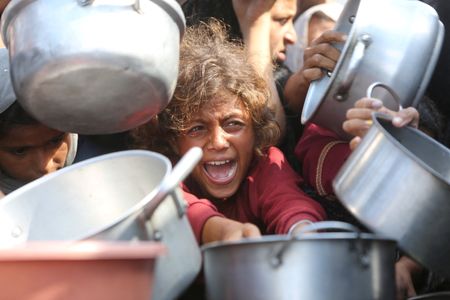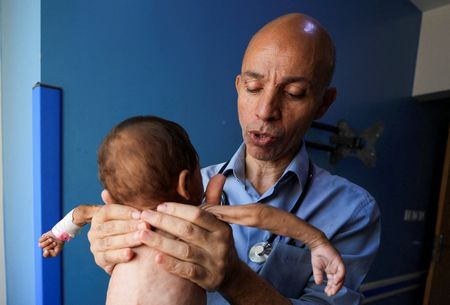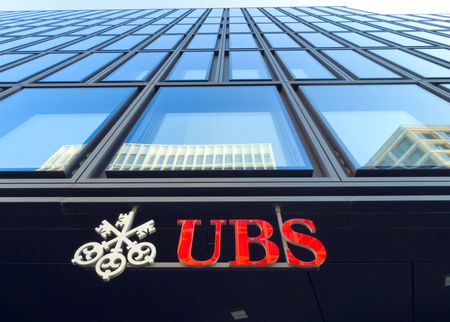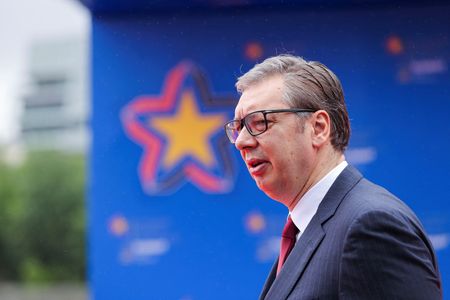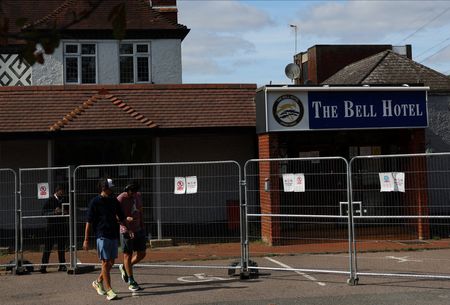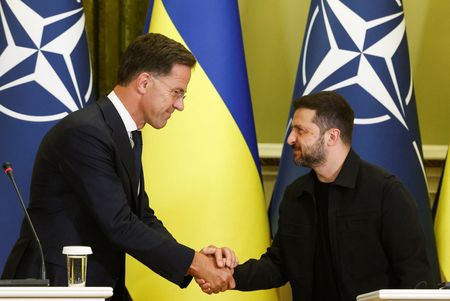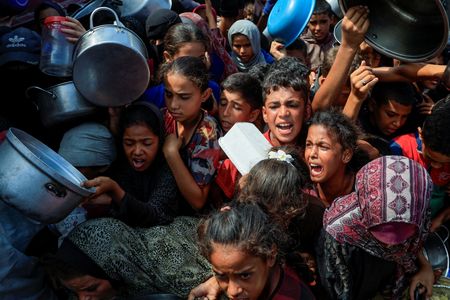By Ian Ransom
MELBOURNE (Reuters) -For the professional athletes competing in the Australian Football League (AFL), anti-discrimination education is mandatory, reinforced annually and supported by stiff sanctions for transgressors.
Such guard-rails have proved powerless to stop a growing number of players making homophobic slurs in the top flight of Australian Rules football.
Adelaide Crows forward Izak Rankine on Thursday became the sixth AFL player since April 2024 to be suspended for directing a homophobic slur at an opponent in a match last Saturday.
Banned for four weeks, Rankine could end up missing out in a place in the season-ending Grand Final and a shot at a premiership medal.
As one of his team’s most important players, the 25-year-old’s absence will hurt the top-of-the-table Crows’ hopes of ending a 27-year championship drought.
However, the greater damage may be the AFL’s efforts to promote inclusion in a sport in which gay footballers are unheard of at the highest level of the men’s game.
In over 100 years of competition in the AFL and its state-based precursor, the Victorian Football League (VFL), no player has publicly identified as gay or bisexual.
Homophobic language will do little to encourage male footballers to break that barrier, according to Erik Denison, a behavioural scientist at Melbourne’s Monash University.
“When this language is used in boys’ sport environments, it’s seen as a homophobic culture — like gay people are not welcome in this environment,” Denison told Reuters.
“And so the problem is the language creates a space where boys are much more likely to go through something and not report it.”
Rankine’s ban comes less than two months after West Coast player Jack Graham was suspended for four weeks for using a homophobic slur during a match against Greater Western Sydney.
St Kilda forward Lance Collard received a six-week ban, the heaviest given by the AFL for the offence, after a match in the second-tier VFL competition last year.
FIERCE DEBATE
The AFL deliberated for an unusually long time before handing down Rankine’s ban, which has generated fierce debate among former players, media pundits, coaches and gay rights advocates.
The AFL’s integrity unit had initially proposed a five-game ban but arrived at four after considering a “compelling medical submission” in Rankine’s defence, without disclosing details of the submission.
The four-game ban gives Rankine an outside chance of playing in the Grand Final if Adelaide lose their first playoff and win their next two.
Gold Coast Suns coach Damien Hardwick, a triple championship-winning coach, said there was no place in the AFL for homophobic language but had reservations about the severity of the penalties.
“We can have a player that belts a guy in the jaw and will get maybe five weeks (ban),” he said on the Fox Footy’s channel’s “AFL 360” chat-show.
“Then we use a term – which again I don’t condone the behaviour, it’s a term that should never be used on a football field and we understand – but I think we’ve painted ourselves into a corner with regards to …. the length of penalty at the start.”
However long or short the bans, they have not proved effective at stamping out homophobic language which remains prevalent in amateur and junior levels.
“We’ve consistently found that about half of young men, especially teenagers in male-dominated sports like AFL and rugby, use this kind of language regularly,” said Denison, who has studied homophobia in sport for over a decade.
“This isn’t rare, or something said in the heat of the moment. It’s become part of the day-to-day language in those sporting environments.”
While Rankine will be sidelined for at least a month, the ban will shadow Adelaide’s campaign through the playoffs.
The AFL said one incident of homophobic language was too many.
“The fact there have been multiple this year shows we still have more work to do and we are committed to that,” AFL General Counsel Stephen Meade said.
(Reporting by Ian Ransom in Melbourne; Editing by Peter Rutherford)


